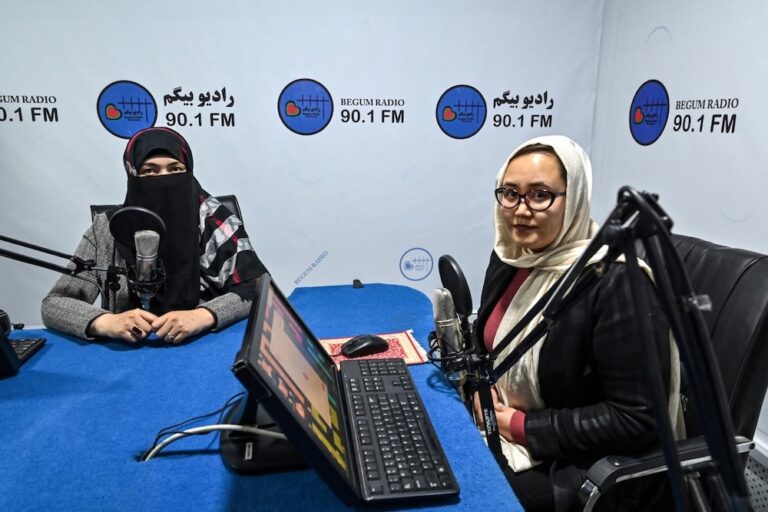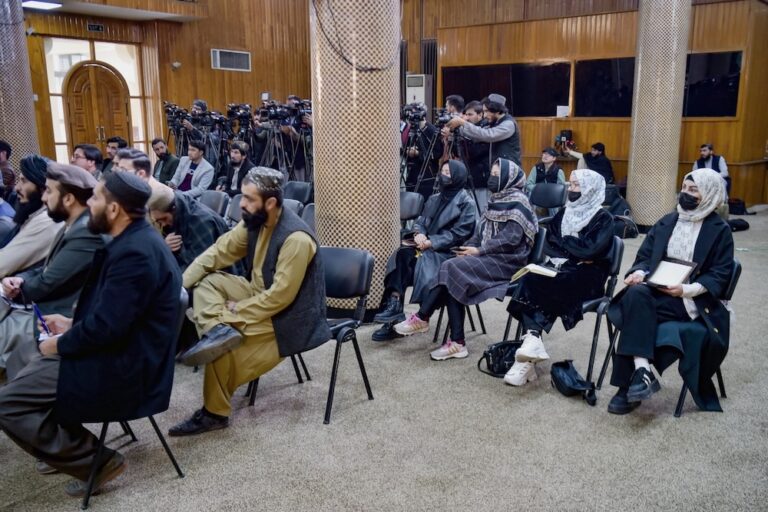(RSF/IFEX) – The following is a 16 March 2009 RSF press release: Report of fact-finding mission Press freedom in free-fall in run-up to presidential election Respect for press freedom has fallen sharply in recent weeks in Afghanistan. The murder of Jawed Ahmad, a stringer for various Canadian news media in Kandahar, “Payman” newspaper’s closure as […]
(RSF/IFEX) – The following is a 16 March 2009 RSF press release:
Report of fact-finding mission
Press freedom in free-fall in run-up to presidential election
Respect for press freedom has fallen sharply in recent weeks in Afghanistan. The murder of Jawed Ahmad, a stringer for various Canadian news media in Kandahar, “Payman” newspaper’s closure as a result of pressure from conservatives and the government, and the Supreme Court’s confirmation of Perwiz Kambakhsh’s 20-year jail sentence are all evidence that press freedom is in serious crisis.
Reporters Without Borders has released the report of a fact-finding visit to Afghanistan in January. Entitled “We have free speech, but we’re not safe and we don’t act responsibly,” it evaluates the gains made for press freedom in Hamid Karzai’s seven years as president.
Media diversity is a reality that can be attributed to the policies of President Karzai and the international community, but at the same time there has been a constant increase in violence against the press and there is little evidence of a government commitment to combating it. The Taliban are to blame for much of this violence, but the security forces, local authorities and international military forces are all also guilty of seriously obstructing the work of journalists.
As the international community debates a strategy for Afghanistan, Reporters Without Borders urges the Afghan authorities and all the parties to the conflict to make respect for press freedom a priority. How can the government and international community hope to combat the corruption and drug trafficking that are poisoning the entire state without a free press to report on these issues? How can you combat Taliban propaganda if the government is unable to defend free speech?
Reporters Without Borders fears that pressure on the media could increase in the run-up to the presidential election that is to take place in August. The report covers the crucial issues of journalists’ safety, the fate of women journalists, the new media law that has yet to be implemented, news blackouts in the regions where the Taliban have the upper hand and finally manipulation of information about the war’s civilian casualties and the disputes that arise from this. Reporters Without Borders recommends measures that would help to improve the situation of journalists working in Afghanistan.
In the course of its fact-finding visit to Afghanistan, Reporters Without Borders met with the justice minister, the culture and information minister, the head of the president’s press office, a member of the Council of Ulemas, civil society representatives, foreign correspondents, members of the International Security Assistance Force (ISAF) and diplomats, as well as many local journalists and representatives of media and journalists’ organisations from Kabul, Kandahar, Mazar-i-Sharif and Herat.
Reporters Without Borders is also posting the text of its exclusive January interview with Perwiz Kambakhsh on http://www.youtube.com/watch?v=my_TXDaCtDQ
To read the full report, see: http://www.rsf.org/IMG/pdf/Report_Afgha_Eng.pdf


